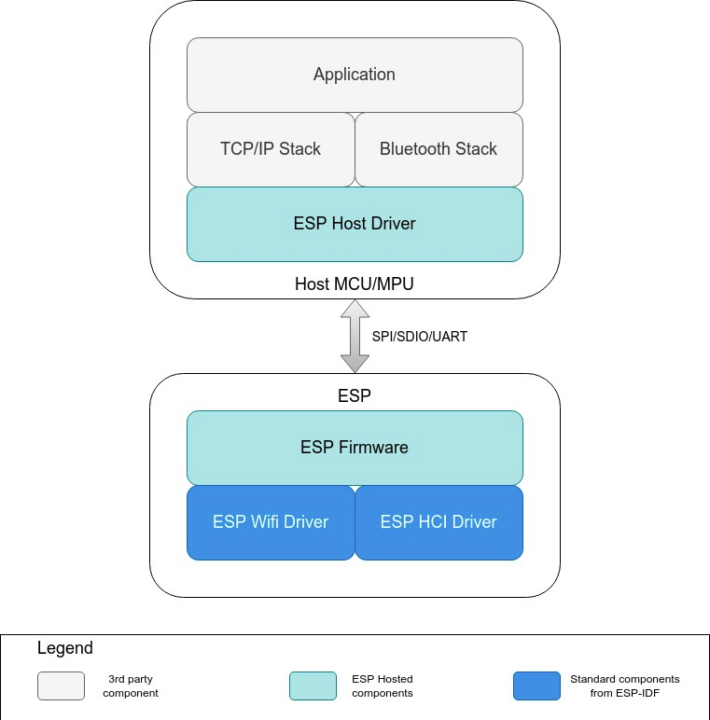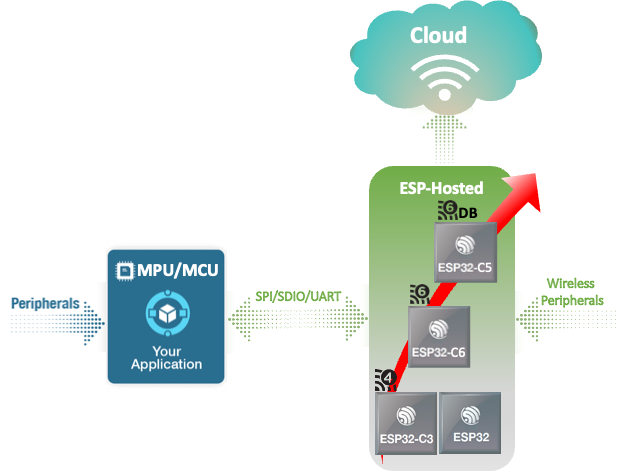Most of the ESP8266 and ESP32 projects and products we cover here use the Espressif microcontroller as the main chip, but ESP8266 started as a WiFi module meant to be controlled with AT commands from a host device. But there are still “legacy” products that may benefit from connecting to the cloud, and Espressif introduced the ESP-Hosted for that purpose in 2020, and recently released a next-generation ESP-Hosted solution (ESP-Hosted-NG) specifically for Linux hosts.
The solution is available in two variants: ESP-Hosted-FG (First generation) exposing an Ethernet interface to the host and suitable for microcontrollers and Linux hosts, and the ESP-Hosted-NG presenting an 802.11 network interface and designed for Linux hosts only. Both solutions include ESP32 firmware and a host driver running on the legacy system.
Espressif Systems recommends using ESP-Hosted-FG on an MCU host, and ESP-Hosted-NG on a Linux host in order to benefit from Linux user space applications/services such as wpa_supplicant, Network Manager, and more. Both can be found on Github with ESP-Hosted-NG part of the master branch, and ESP-Hosted-FG in the “ESP-Hosted_MCU_Host” branch.
Since ESP32 modules show up as either an Ethernet interface or standard WiFi module, the solution is mostly plug-and-play and does not require as many re-qualification/re-certification efforts since ESP-Hosted does not touch upon use-space applications. The company also highlights potential power saving with the main MPU/MCU’s ability to remain in low-power mode continuously, while staying connected to the network.
The solution currently supports ESP32 and ESP32-C3 WiFi 4 and Bluetooth microcontrollers, but ESP-Hosted will also work with the upcoming ESP32-C6 (WiFi 6 + Bluetooth 5 LE) and ESP32-C5 (dual-band WiFi 6 + BLE) microcontrollers, allowing customers to offer products with different connectivity options using the same host driver using SPI, SDIO, or/and UART interfaces.
So overall, ESP-Hosted aims to provide an easier upgrade path for offline devices so that they can benefit from the advantage of cloud connectivity such as OTA firmware upgrades, remote management, and improved productivity due to automation and M2M communication.

Jean-Luc started CNX Software in 2010 as a part-time endeavor, before quitting his job as a software engineering manager, and starting to write daily news, and reviews full time later in 2011.
Support CNX Software! Donate via cryptocurrencies, become a Patron on Patreon, or purchase goods on Amazon or Aliexpress






